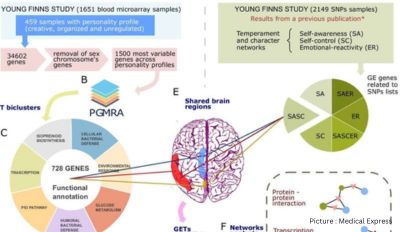Over the last year, several drugs have either been developed or tested to treat coronavirus. Now there’s another that’s showing some promise. Molnupiravir is an antiviral drug in clinical trials.
In an interview with molecular epidemiologist Dr. Jill Roberts says the way that it works is it messes up viral replication. It’s shown some use against other viruses such as SARS and MERS.
Dr. Roberts says during an animal study on ferrets, they tried to get coronavirus to spread, and it wouldn’t. So while it’s a treatment designed to prevent hospitalizations and deaths, it also seems to prevent transmission.
While there is no timetable about when this would be available, it could be promising for future viruses or pandemics. “This is a great tool to have to be able to know for future viruses maybe if we get a mutant that actually circumvents the vaccines, this drug will still work.”
Dr. Roberts says now that Merck is behind it, it has the resources to do a big enough trial to send to the FDA to get Emergency Use Authorization or even full authorization.
A couple of other positives she pointed out with this drug: it can also be used for people who do not want to get a vaccine or don’t have the resources to get shots. And, this is a pill, unlike other treatments right now that are IVs and have to be given at a treatment center.
It would be a pill, exquisitely calibrated to target SARS-CoV-2, with tolerable side effects and a low price tag. And it would work just as well as those antibody treatments that require an hourlong intravenous infusion, but it would come in a handy packet patients could take home.
“We’re looking for something I could give everyone in an urgent care setting who comes in with exposure or a positive test,” said Nathaniel Erdmann, an infectious disease specialist at the University of Alabama at Birmingham Hospital who treats Covid-19. “An easy, oral, safe drug.”
NIH Director Francis Collins called his “dream”: a highly effective pill that can be given immediately after diagnosis.“It’s just a damn long pathway,” Collins said in an interview. First scientists have to find molecular vulnerability in a virus, and then comes the process of screening hundreds of thousands of would-be drugs to find the few that latch onto that target. Then medicinal chemists get to work on honing a Goldilocks molecule that balances power, specificity, and safety, and if everything goes well in the Petri dish, there’s still months of animal testing to do before a single human being can take a pill in a clinical trial.
“But I will tell you that this is an extremely high priority for Tony Fauci and Francis Collins and the Biden administration, to work with these companies to try to make sure that we speed this up,” Collins said. “Because this pandemic is going to be with us — even with great vaccines — and people are going to get sick.”
There is hope, even in the short term. Any day now, Merck is expected to present pivotal data on an oral treatment akin to remdesivir. Behind that is a treatment from Atea Pharmaceuticals, first developed for hepatitis C virus, which could have pivotal results in the coming months. Neither is purpose-built for the virus that causes Covid-19, but experts said the treatments could still tick many of the boxes of a hoped-for antiviral.
Perhaps most promising is a novel antiviral from Pfizer, a drug engineered specifically for the virus SARS-CoV-2 that entered its first clinical trial last month.
New Jersey-based Merck acquired the drug, MK-7110, through its $425 million acquisition of privately held biopharmaceutical company OncoImmune late last year. An interim analysis of clinical trial data suggested the drug improved the chances of recovery for the sickest patients with Covid-19 and reduced the risk of death or respiratory failure.










